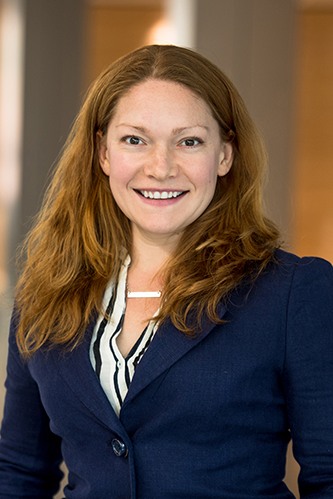Research Spotlight: Associate Professor Bathsheba Demuth
In her travels to the Yukon, Demuth delves into the region's environmental heritage through the stories of those who sustain it.

Demuth visited the area for her upcoming book project, which she sees as a “biography of the Yukon watershed.” Throughout the expedition, she met with locals to conduct interviews, hear oral histories, and deepen her understanding of the region.
Demuth traveled to approximately 10 different villages during her trip, talking to natives about their firsthand experiences witnessing environmental change during their lifetimes.
Despite the magnitude of this research, it did not deter Demuth from her role as an educator. After spending six weeks conducting research, in August she also taught a field course on the Yukon River for undergraduates at the University of Alaska Fairbanks.
“[The course] was in response to interest from tribal leaders along the river,” Demuth said. “They want more college students and more people who are likely to go into wildlife management … [to] actually have experience on the river.”
Explorations in Arctic life
This was not the first time Demuth ventured up north. The Iowa native first moved to the Arctic when she was only 18 years old to serve as a dog handler in an Indigenous Canadian community. “I meant to stay for like three months,” she reflected. “I stayed for a couple of years and have been in-and-out and back-and-forth ever since.”
“ I meant to stay for like three months. I stayed for a couple of years and have been in-and-out and back-and-forth ever since. ”
Demuth has since shifted her focus from canines to humans, spending this summer immersed in “transformative discussions with people about their experience with the way that the state of Alaska and the federal government have tried to kind of manage the lands that they’re on,” she explained. These conversations further contextualized the knowledge of the region that she had gained through text-based research.
“Most of the communities along the Yukon have — for most of their history — depended heavily on the migratory salmon swimming up in the Bering Sea. Those salmon species have been in severe decline,” she noted. “I don't think I had before this summer quite put together the ways in which attempts to manage that fishery for commercial purposes have systematically cut out people along the river.”
Looking ahead
The professor, who is teaching three classes at Brown this fall, looks forward to returning to the Yukon next summer and over winter break to complete her project’s next steps.
“There’s a ton of work done about the Gold Rush, but that’s a five year timespan … and [that scholarship] leaves out all the things that happened before it and so much that’s happened after it,” Demuth asserted.
She wants to shine a light on the forgotten histories of the Yukon, including the discrepancy between the Canadian and U.S. sides of the river. "If people are interested in knowing about the river and its environmental past," she said, "they [will] have one place that they can start rather than having conversations that are separated nationally.”
Demuth ultimately hopes to foreground the book in her conversations with Yukon River community members, highlighting "what kind of history they feel would be useful, or what histories they feel usually fall out of what people understand about the river from the outside,” she said.
Though the scale of her work may seem daunting to some, Demuth is up to the challenge. To keep up with her studies and travels, you can visit her website or follow her on X @brdemuth.